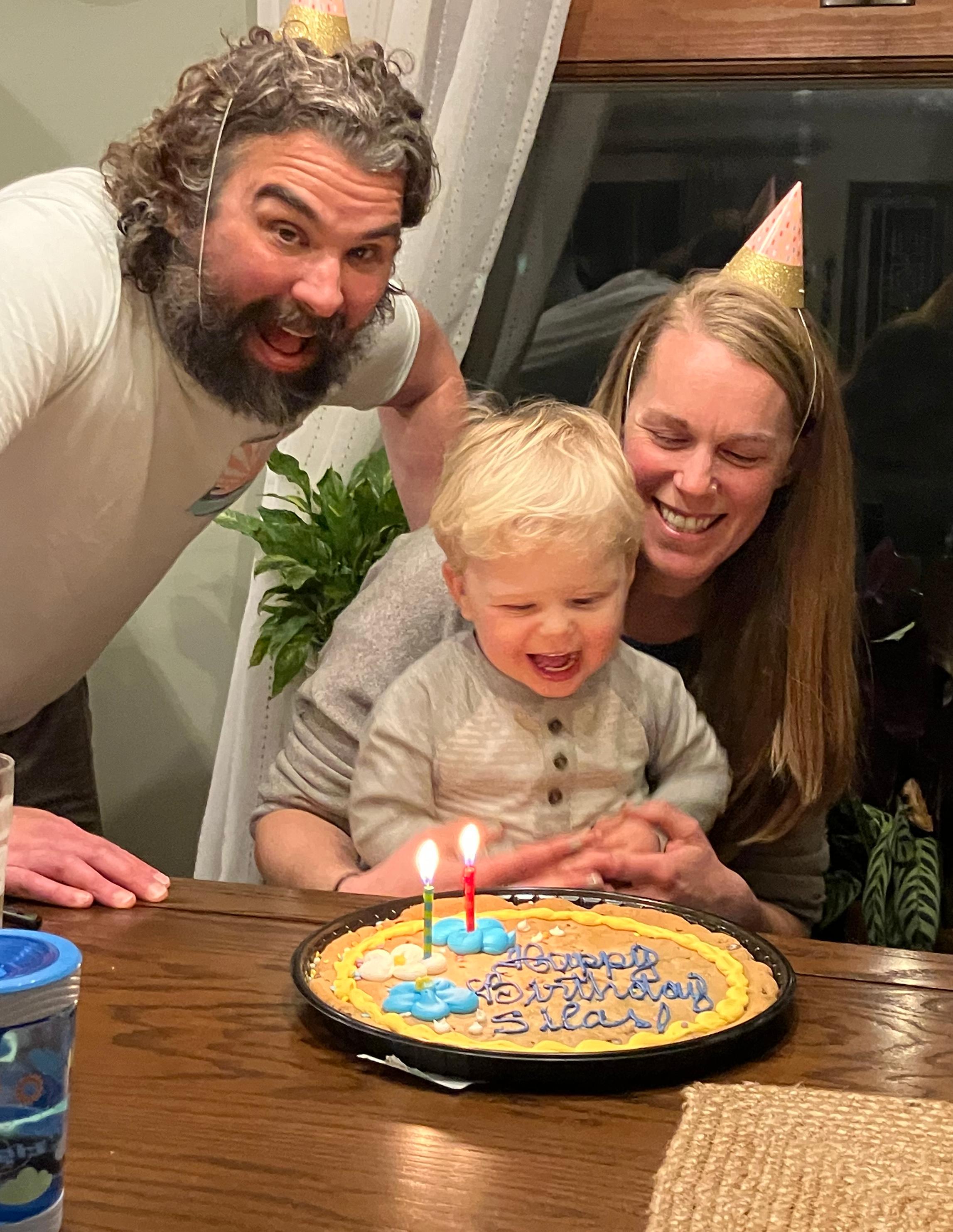
CRAIG HOSPITAL FOUNDATION SPRING 2024 NEWSLETTER
Dear Craig Community,
As we continue to celebrate the 50th anniversary of the Craig Foundation, I hope you will join me in reflecting on our history. From the Foundation’s inception in 1974 through 2000, donors generously contributed approximately $500,000 annually. Since then, many additional benefactors have joined together to make a tremendous impact. Together, we can celebrate our collective impact in the following ways:
From 2000 to 2003, more than $7.3M in gifts from donors helped build Patient and Family Housing, which makes a tremendous difference for patients and families as they benefit more fully from the education and training offered at Craig. It’s more than a building – it’s a place where Craig families gain confidence in self-care and caregiving, and serves as a place for people to connect, learn from each other, and create lifelong relationships.
From 2012 to 2016, more than $73M in gifts from donors helped Craig revitalize its campus by providing accessible garden areas, and an easy and safe drop-off area at a new front door for the West Building. In addition, Craig donors helped develop:
• Family bistro cafes and lounges to offer much-needed space for patients, families, and peers to connect and support each other;
• The PEAK Center, an accessible community-based gym that promotes health and wellness among people with disabilities—complete with locker rooms and showers and a state-of-the-art therapy pool;
• Private patient rooms with space for caregivers to perform medical tasks and spacious enough for family members to relax;
• A larger Outpatient Clinic that is now double from its previous size.
From 2016 to 2023, donors have contributed an additional $72M to fund programs not covered by insurance, such as Therapeutic Recreation, Community Reintegration, our School Program, Music Therapy, and more. In addition, your impact is celebrated in the following milestones that make a real difference for real people in meaningful ways:
• Craig Hospital’s first Endowed Chair, the Helen Phillips Levin Endowed Chair of Research is held by Candy Tefertiller, PT, DPT, Ph.D., NCS, executive director of research and evaluation at Craig Hospital. Dozens of donors launched the fund in 2019 and it was joyfully completed by the Jay and Rose Phillips Family Foundation of Colorado in 2023. The funds are being used to expand Craig’s translational research portfolio, which will ultimately lead to better outcomes for those who receive care at Craig, as well as those in the greater community of SCI and BI.
• Craig became the first acute rehabilitation facility to utilize applied behavior analysis for people living with traumatic brain injury, thanks to generous investments to expand Craig’s Neurobehavioral Program. Funding from donors is helping Craig’s BI patients who display challenging behaviors receive personalized behavior plans and serve as reliable resources for care team members. These professionals also offer specialized training to Craig clinicians to give them the skills to properly define, intervene, and track changes in behavior.
• The Craig Foundation distributed more than $2.7M in 2023 in direct patient support for adaptive equipment, home remodeling for accessibility, caregiver training, travel arrangements for family members to engage in education and therapy at Craig, air ambulance from Craig to a home community, and to meet transitional financial emergencies despite limited insurance coverage or financial means. More than 500 patients received some sort of assistance for these emergent needs!
These amazing accomplishments would not be possible without our generous donors. Thank you for choosing to invest in Craig families. You inspire us to work harder, dream bigger, and make a lasting impact in the lives of those we are honored to serve.
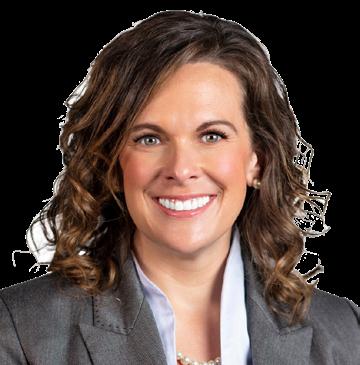
Yours in shared service,
 Serena
Serena
2
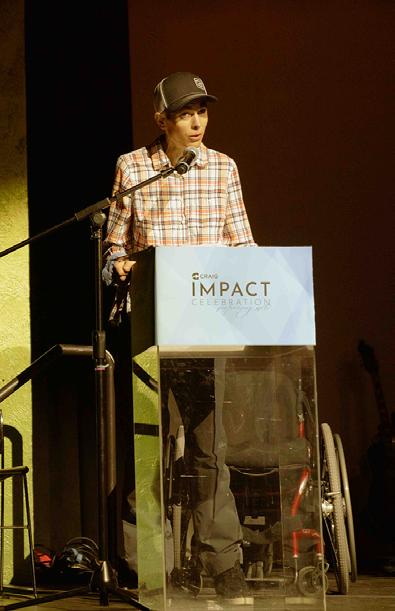
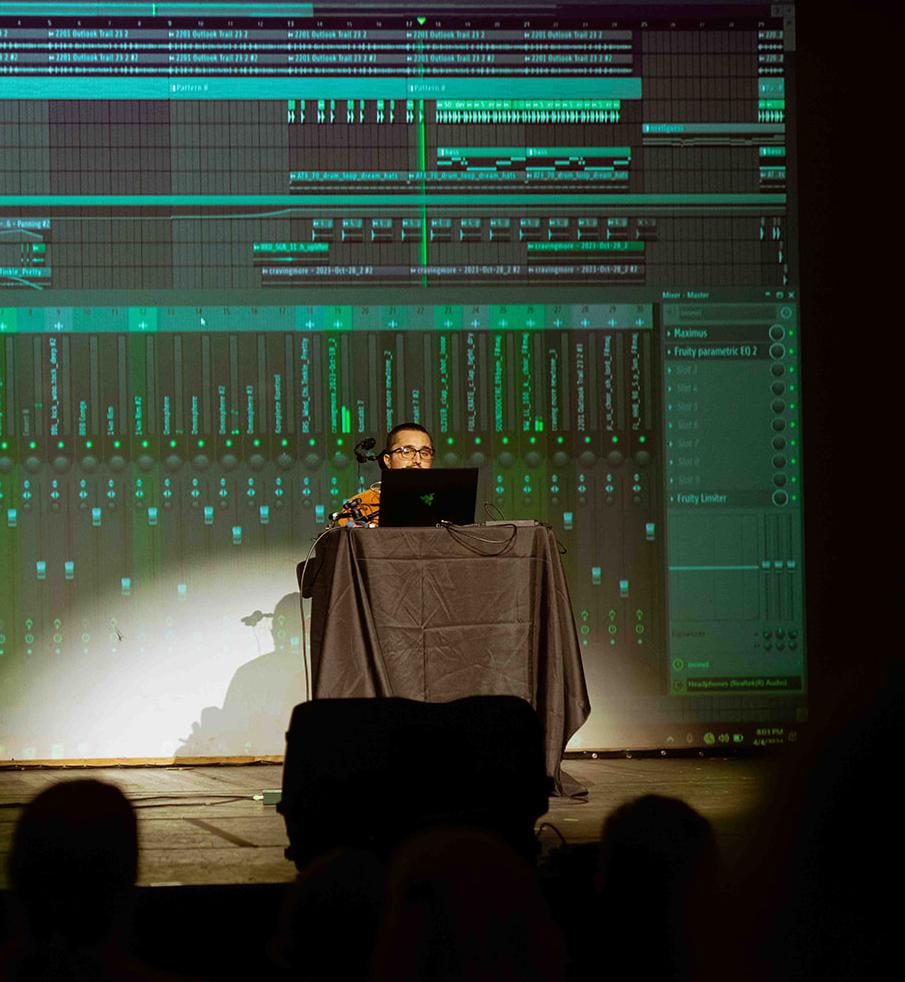
On Thursday, April 4 we held our first Impact Celebration: Performing Arts event at The Holiday Theater in Denver. We were humbled and exhilarated to be able to give such talented Craig grads the stage they deserve. Each performer brought their whole selves, and all who attended left inspired.
Our generous sponsors, attendees, and donors raised over $152,000 and we are still collecting more! These funds will be put to work right away to support programs like music therapy. Thank you from the bottom of our hearts!
\\ CLICK HERE to watch a recording of the performances!
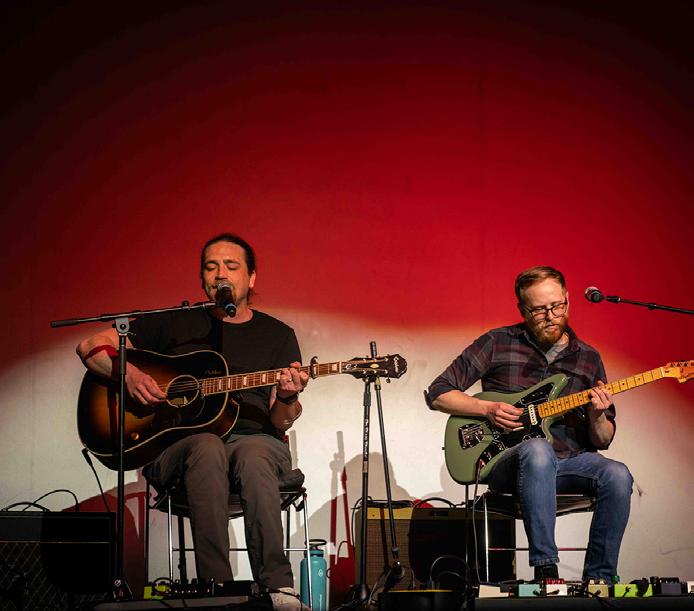
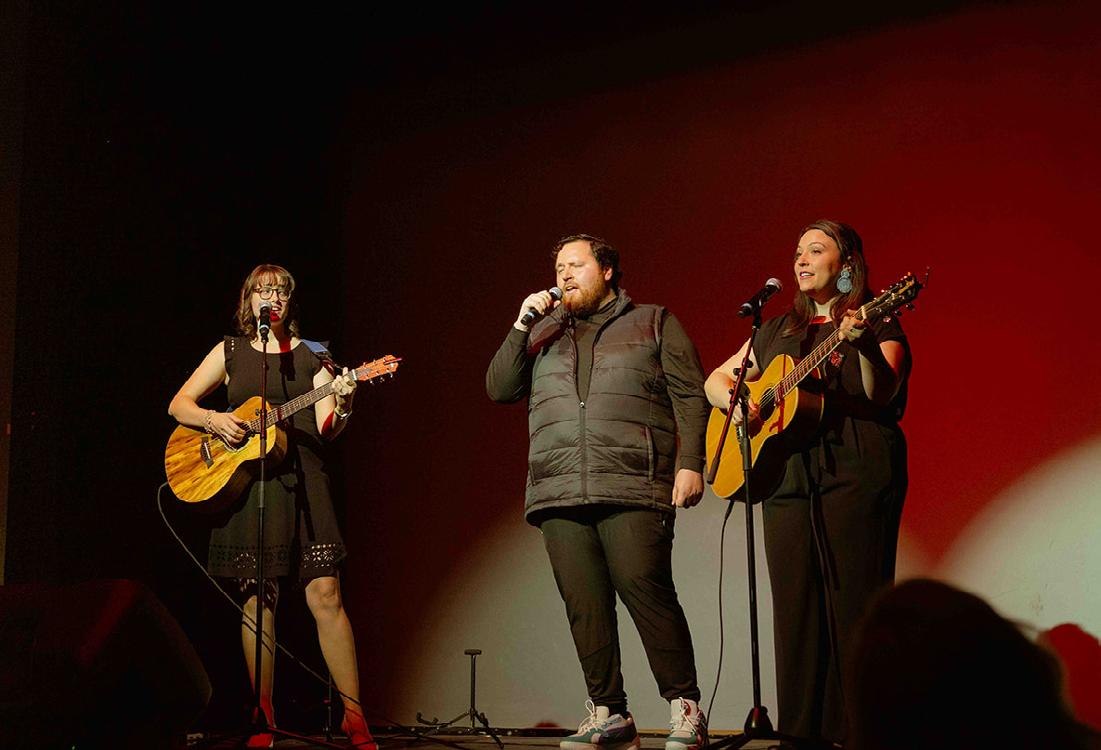
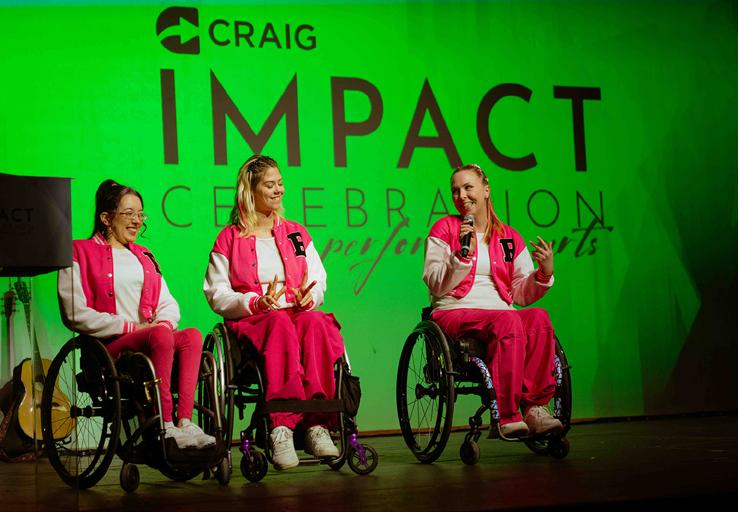

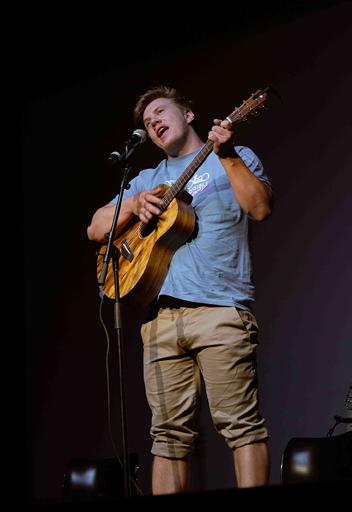

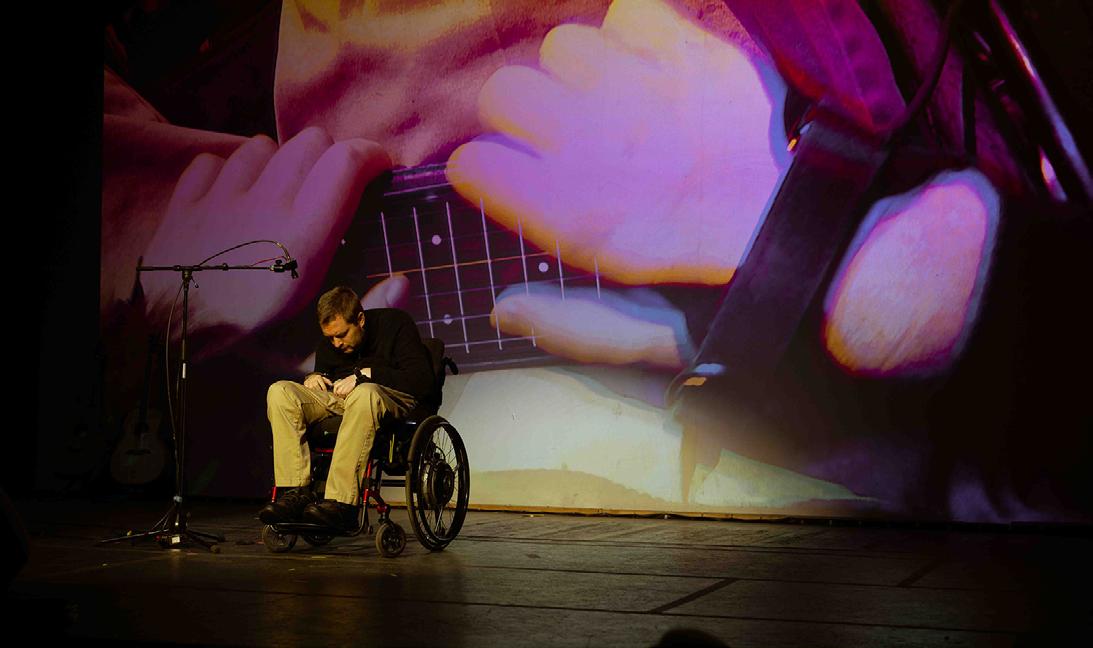
3
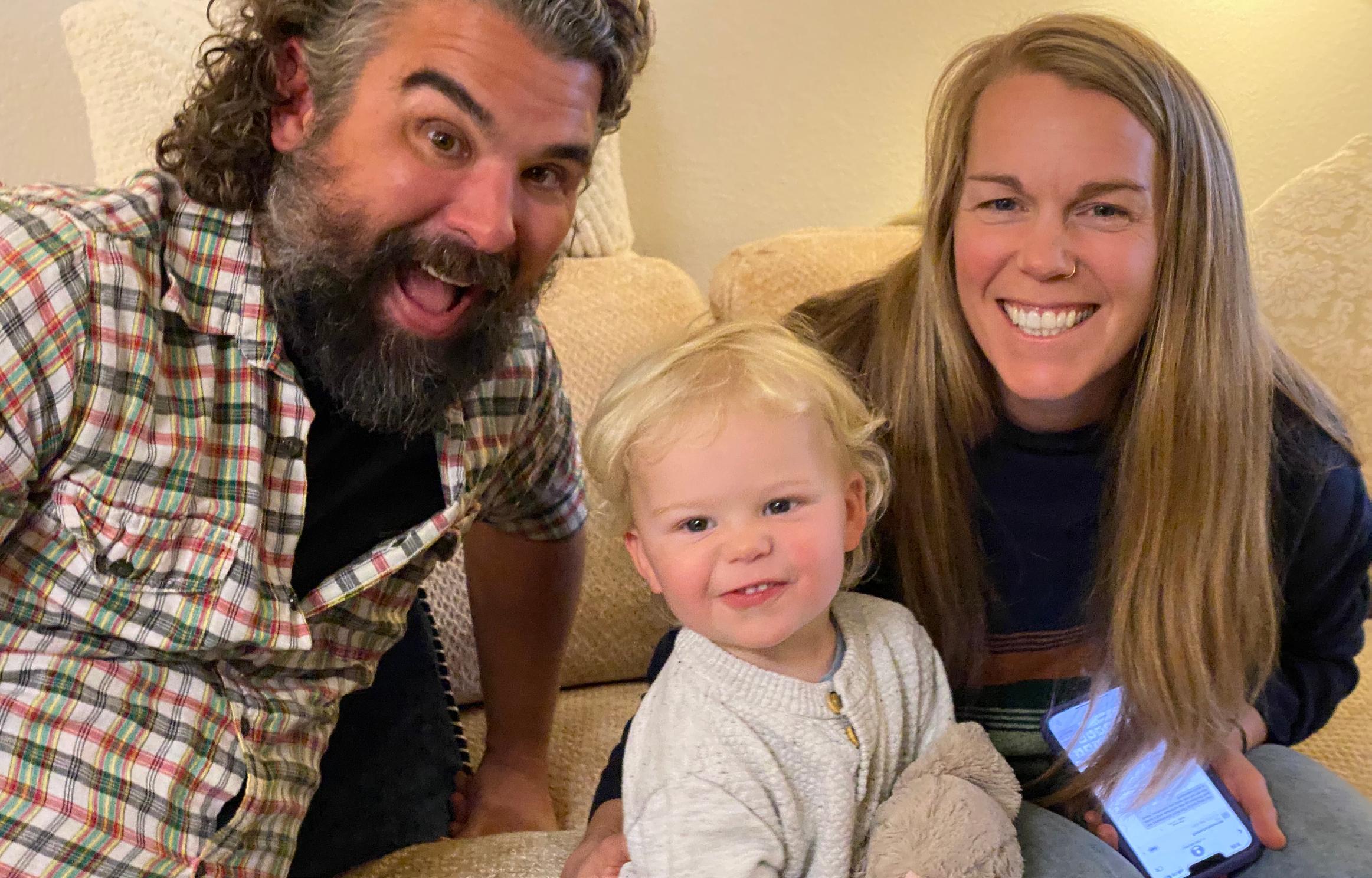
Alan Payne Focuses on Returning to Teaching after a Brain Injury
For many people, work is a significant part of their lives. In addition to earning an income, employment allows individuals to develop a sense of identity and pride, establishes important social connections, and increases self-esteem and independence.
For 45-year-old Alan Payne, teaching art at Annunciation Catholic School in Northeast Denver provided him with a sense of meaning and purpose. Not only did he find pleasure in providing for his family, but teaching art also meant helping young students find joy and creativity—something he loved.
It’s also a calling that Alan is desperately trying to get back to since his life-altering accident more than two years ago.
AN UNEXPECTED RIDE
After finishing work on Thursday, December 16, 2021, Alan, an experienced cyclist, was enjoying a ride on a warm, winter afternoon when a truck suddenly turned in front of his bike, causing him to T-bone the truck.
He was rushed to a nearby Level 1 Trauma Center, where he was diagnosed with a diffuse axonal brain injury and placed in a medically induced coma.
Shortly after, Alan was transferred to Craig Hospital, where he spent the next three months surrounded by
his wife, Meg, and his infant son, Silas, who was born just a few weeks after the accident.
“I knew Craig Hospital was the best place for Alan,” recalls Meg, a physical therapist who had worked at Craig back in 2013. “We both feel very blessed to live in a city with a world-renowned rehab hospital.”
While at Craig, Alan slowly began the recovery process. “I don’t remember most of my time at Craig,” says Alan. “I had no memory of the accident, and I couldn’t feed myself or shower on my own. I also had global aphasia and severe motor planning deficits. My days were spent in physical, occupational, and speech therapy, trying to regain so many lost skills.”
In late March, Alan was discharged from inpatient and returned to Craig twice a week for outpatient therapy.
STRIVING FOR INDEPENDENCE
It was during Alan’s outpatient treatment in October 2022 that he began working with Casey Pfister, an occupational therapy specialist with the donorsupported Community Reintegration program.
“Our main objective is to help patients return to productive, community-based activities, such as work or school,” Casey explains. “We concentrate on each patient’s unique objectives in order to achieve a sense
4
of stability, meaning, and enjoyment. In some cases, it’s a big piece of our identity, so helping patients return to that role is our main focus.”
She adds, “Depending on a patient’s specific needs and goals, our services include work readiness assessments, collaboration with employers, coaching and development, career planning, and community resource connection.”
While getting back to teaching on a full-time basis was Alan’s long-term goal, he knew he wasn’t ready. “I set a date of August 2025 as my target for getting back in the classroom full-time,” he explains. “I still had many challenges, and I knew I had a lot of work to do before then. Casey helped me break down milestones to support timelines and progress for my long-term goal.”
Casey’s first step was to get Alan involved in volunteering to give him a sense of purpose and increase his productivity. She helped vet volunteer sites by assessing environments, duties, interests, current abilities, and barriers. In addition, she connected him with a reliable, affordable transportation option.
Based on his interests and passions, she set up volunteering opportunities at Bikes Together—a nonprofit bike shop and community hub for equitable bike access and education—and in the art room at C3, a Denver elementary school.
“Volunteering provided a great opportunity for Alan to build self-advocacy skills, practice collaboration and communication with his supervisors and co-workers, develop checklists and strategies to compensate for memory challenges, and improve independence,” Casey explains.
“At the same time, we worked together on goal mapping, role-played scenarios that might take place in the workplace, and developed strategies to address Alan’s fatigue and limitations related to memory, planning, and organization,” she says. “We also reinforced routines by using a day planner, reminders, and alarms.”
Casey also met with Alan’s supervisors to discuss accommodations, performed onsite visits to analyze work demands and observed Alan at work to help boost his performance.
“The goal was to help Alan incorporate strategies and establish routines in the context of volunteering and work,” Casey explains. “The beauty of our program is that it allows us to have more of an impact by going into the environment and making impactful changes.”
When Alan was ready, a part-time job was the next step. Prior to his accident, he worked at Molly’s Spirits, a large, liquor store in Denver, so Casey reached out
to his previous supervisor and arranged for Alan to return to Molly’s Spirits about 12 hours a week with accommodations.
Casey also connected Alan with the Division of Vocational Rehabilitation and a benefits counselor, which was critical to Alan’s understanding of how his work earnings impact benefits.
In addition to supporting Alan in his work at the liquor store, Casey is currently helping him boost his confidence and increase his responsibilities at C3, including teaching more art lessons in the classroom. “I benefit from practice and repetition, so I’m working on developing a lesson plan to teach print-making to first graders,” Alan explains. “And Casey plans to organize a rehearsal in front of Craig staff before I deliver the lesson to my students.”
He adds, “Casey has set me up for success, and I feel so grateful. She’s taught me how to advocate for myself, develop a problem-solving mindset, tolerate longer days, and get my confidence back. I am even driving again, which is something I never thought was possible. But thanks to the support of Natalie Uyeno [a driving rehab specialist in Craig’s donor-supported Adaptive Driving Program], I am back on the road again and can independently drive myself and access the community.”
When Casey reflects on her time working with Alan since 2022, she can’t help but smile. “Alan is an amazing example of what’s possible after a brain injury. He works so hard and has the best attitude. People may not realize that a brain injury is forever. Alan will face challenges every day for the rest of his life, but through it all, he stays positive, is always open to feedback, and focuses on growth and self-improvement. He’s quite amazing and an inspiration to so many.”
Thanks to the generosity of donors, Alan has been able to return to work and access his community through Craig’s Community Reintegration and Adaptive Driving Programs. To learn more about patients like Alan, please visit craighospital.org/blog

5

Dr. Park Receives Career Development Award
In collaboration with the University of Colorado Boulder Department of Integrative Physiology and Clinical Translational Research Center, Dr. Andrew Park and his mentors were recently awarded a Career Development Grant from the American Heart Association.
This award will support Dr. Park—a spinal cord injury physician and researcher—to continue to advance research that helps prevent heart attacks and strokes in people with spinal cord injury.
Recent studies have demonstrated that adults with spinal cord injury sustain heart attacks and strokes much earlier in life. People with spinal cord injuries develop plaque in vessels much faster, but the mechanisms of why are unclear.
Physicians used to think that plaque formed because people with spinal cord injuries gained weight and developed diabetes. However, many studies have shown that even without these common risks, plaque in the vessels develops more often and faster.
Endothelial cells, a single layer of cells that line all vessels in the body, play an important role in vessel health. Damage to endothelial cells is known to lead to heart attacks and strokes, but it is unclear if endothelial cells of people with spinal cord injury are healthy.
“Our research team has new data showing that these cells are unhealthy after spinal cord injury, using a more accurate measure of endothelial health,” Dr. Park says. “We are also characterizing small particles that we can measure in the blood, which may be a better marker of the health of these endothelial cells. If our project is successful, we will learn a lot about the health of endothelial cells after spinal cord injury.”
He adds, “We will also be able to use our marker of endothelial cell function to create treatments to improve vessel health and prevent heart attacks and strokes later in life in people with spinal cord injuries.”
Since 2020, Dr. Park has been part of the CNS Physician Group and Craig Research Department teams. He knew early on in his education that he wanted to focus on SCI rehabilitation, and he came to Craig already deeply invested in treating SCI patients and furthering their long-term successes.
“I grew up in a time when exciting new research was coming out that was disproving the idea that neurological injury, specifically SCI, is something that’s not curable and something that we can’t improve,” he says. “When I actually got to work with patients with spinal cord injury throughout my training, I also saw how providers get to have these longitudinal relationships with people and their families to continue on with their life. That’s what really attracted me to SCI.”
Today, Dr. Park splits his time between Craig’s dual focuses of research and neurorehabilitation, which allows him to provide important insights into both areas of care.
“The way we think about problems and the way we think of solutions to those problems in research and clinical work are often very different,” Dr. Park explains. “I’m hoping my research will be more translational and be able to bridge that gap where I’m studying things that I can apply to my patients and then questions that come up in the clinic I can apply to research.”
6

Craig Foundation’s 50th Anniversary Challenge: The Lavelle Family Gives Back
On a cold, rainy night in the fall of 1982, Larry Lavelle was involved in a serious car accident. He spent three months in a hospital near his Pittsburgh home before transferring via Angel Flight to Craig Hospital.
While Larry recovered in Denver with his wife, Nancy, by his side, his four young children were back home in Pittsburgh.
Thanks to the generosity of their community, the children were able to visit their dad in Denver once. Mark, Larry’s son recalls, “Craig staff treated us all like family, while my dad recovered and my mom focused on learning the caregiving skills needed for life after Craig. We felt so grateful for the Craig community, who was there for us when we most needed the support.”
This gratitude inspired the Lavelle Family Foundation to give back to Craig with a $1,000,000 challenge gift, encouraging others to get involved in philanthropy!
“The impact that Craig had on our lives inspired this gift. It’s our story,” Mark explains. “It was a story born out of tragedy, but it turned into a story of great hope, joy, and perseverance. We wanted to give back, and our hearts led right to Craig.”
When Larry first arrived at Craig, he had a C2-C3 incomplete spinal cord injury. He was on a respirator and couldn’t move any of his extremities.
“But the Craig team taught him so much, including how to breathe, which meant not only could he do a lot more physically, but his life expectancy was longer. Craig gave him the confidence to go home and face life. He was interested in looking to the future, thanks to the positivity he learned at Craig. He started to believe in a next chapter.”
Adds Mark, “My family thinks of this gift as a privilege and an honor. It feels like so much more than just giving. There’s no word for it—except gratefulness.”
\\ CLICK HERE to learn more and join the challenge with us!
Research Department Celebrates 50th Anniversary and Distinction Award for Craig Hospital
The American Academy of Neurology has selected the abstract, “Transcutaneous Spinal Cord Stimulation (ARC-EX Therapy) is Safe and Effective at Improving Upper Extremity Function Following Spinal Cord Injury,” for the merit of distinction in 2024.
This research on ARC-EX Therapy, led by Candy Tefertiller, PT, DPT, PhD, NCS, Craig Hospital’s Executive Director of Research and Evaluation, and the Helen Phillips Levin Endowed Chair of Research, was chosen based on the quality of the study and interest to the neurologic community.
“The SCI community is eager to have access to this innovative technology,” Dr. Tefertiller explains. “Even a small difference in hand and arm function can have a profound impact on independence and quality of life. The results of the Up-LIFT trial that led to this submission represent a significant advancement in the use of neuro-modulation for individuals with spinal cord injury.”
The Up-LIFT trial—which enrolled 65 individuals across 14 sites with chronic quadriplegia—demonstrated improvements in upper extremity function and strength in response to training in combination with transcutaneous spinal cord stimulation. This stimulation is a non-invasive form of neuromodulation in which electrodes are placed on the skin and used to stimulate the spinal circuitries via an electrical current.
In addition, 17 individuals were able to use the spinal stimulators in their homes for one month and demonstrated continued improvement in some of the outcomes. Most importantly, the home portion of the study demonstrated individuals were able to safely use the devices in their homes with caregiver support. Craig enrolled more participants in these two trials than any other center.
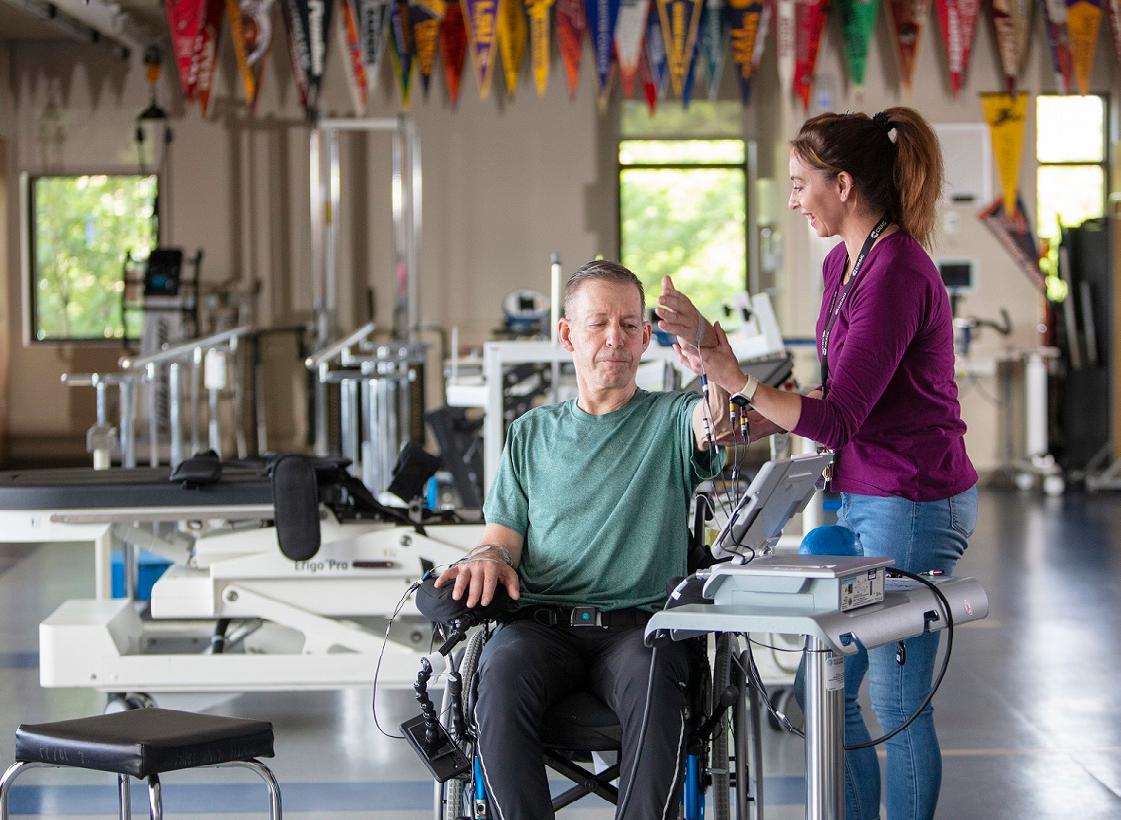
7
3425 S. Clarkson Street
Englewood, CO 80113
2024 SIGNATURE EVENTS
FRIDAY, JUNE 21
INFINITY PARK EVENT CENTER
Returning for its second year, this event will feature a patient’s journey with Craig in a uniquely immersive way, followed by a festive seated dinner with a live fundraiser. craighospital.org/immersive
MONDAY, JULY 29
SANCTUARY GOLF COURSE
Join us for a day on the links for the Craig Hospital Sanctuary Golf Tournament presented by RE/MAX, LLC to support and assist Craig’s patients and programs. craighospital.org/sanctuary
SATURDAY, OCTOBER 26
HIGH PLAINS RACEWAY
A fresh take on a traditional road ride, Pedal 4 Possible: At the Raceway, returns to High Plains Raceway. This exciting event gives riders of all abilities an exclusive chance to experience one of America’s greatest amateur road racing facilities from a bicycle. pedal4possible.org


foundation@craighospital.org

8
303-789-8650
If you would like to be removed from the Craig Foundation mailing list, please call 303-789-8650 or email foundation@craighospital.org. CONTACT US
craighospital.org/foundation craighospital.org/blog
BENEFITING CRAIG HOSPI TA L


 Serena
Serena

















